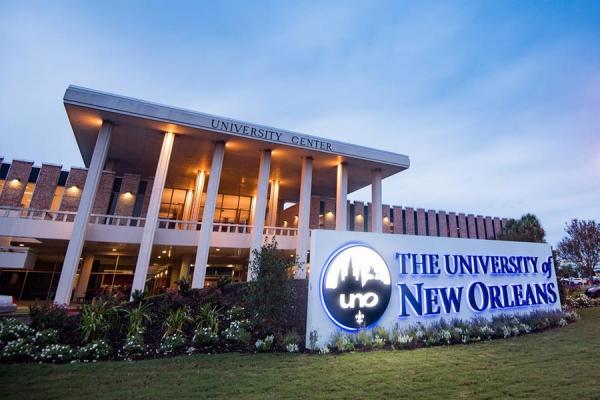University of New Orleans Ties Affinity Housing to Student Success
The University of New Orleans expands its housing options for first-year students this fall in an effort to build more community on campus and advance student involvement and engagement. Studies show that students who live on campus tend to be more involved on campus and in the community and tend to achieve higher GPAs.
"When students have shared experiences and shared connections, they have higher retention rates," said Christy Heaton, associate director for orientation and first year student success at UNO.
Starting this fall, most first-year students at the University will be required to live on campus, in keeping with a University of Louisiana system policy. The policy requires that all unmarried, full-time undergraduate students, regardless of age or emancipation status, live in campus residence halls as long as space is available. (Several exemptions exist.)
The freshmen will live in Pontchartrain Halls North and South, state-of-the-art residence halls that accommodate more than 700 students and include on-site laundry, lounges with televisions and pool tables, study rooms and shared kitchens on the first floor.
To create a stronger sense of community, the University Office of Student Affairs and Enrollment Management has partnered with the University Office of Student Housing to develop affinity housing, which ties wings in residence halls to special interests.
Come fall, the University's Pontchartrain Hall North and Pontchartrain South will have three specialized wings: a New Orleans Culture Wing for freshmen only, a Transfer Student Wing for transfer students and a Leadership and Involvement Wing, which accommodates both new freshmen and transfer students.
The New Orleans Culture wing is a New Orleans-themed affinity housing floor that will introduce residents to and help them explore the vibrant city of New Orleans. The Involvement and Leadership floor in affinity housing will help students to build leadership skills through community-based activities and involvement in the University's more than 130 student organizations.
Each floor in the residence halls is able to accommodate approximately 85 to 90 students, approximately half of whom will occupy special wings on the third and fourth floors, said Heaton.
The top floor of North Hall is reserved for students in the University's Honors Program, which is designed both to challenge high-ability students and provide a means for creating lifelong friendships.
The University is also exploring construction of three new on-campus residences to be enjoyed by fraternities and sororities, said President Peter J. Fos and Vice President of Student Affairs and Enrollment Management Brett Kemker. Greek Life recently saw a surge of membership on campus and involvement in fraternities and sororities has been tied in various studies to academic success.
"We're excited because although a lot of students may feel they don't have a choice about living on campus, we're giving them options to create their own on-campus living experience," said LeeAnne Sipe, coordinator of campus programs in the Office of Student Involvement and Leadership. "Affinity housing is just the beginning of that."
Sipe is now revamping training for the University's approximately 15 resident assistants "so that they will be doing more programming and be more involved with students," she said.
Incoming fall freshmen can sign up for affinity housing by completing the housing application on the Office of Student Housing website. Affinity housing is first-come, first-served. Recruiting tables and sign up will also be at Orientation Fest (or O-Fest) at New Student Orientation.





